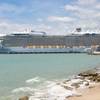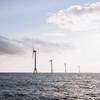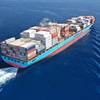Northern Norway has a large fleet of small and mid-size boats for commercial operations, for example, passenger boats, car ferries and a multitude of fishing boats. These are boats that operate year around and that at regular intervals need to replace their engines. A new engine is a large investment, but with the reduced operating expenses for the D12 the investment has quickly been made profitable. The high-speed passenger boat MF Sjösprint was equipped at the end of last year with twin D12s for propulsion. The fuel consumption is now approx. 30 percent lower compared with the old engine, while at the same time performance has improved. Noise and vibrations are also significantly lower with the D12 engines.
The MF Flatöy car ferry installed a D12 last May. The crew does not miss the old engine. “Volvo Penta engine has operated problem-free and has a very low noise level, which is comfortable for us working onboard,” says Torgier Gamst on the MF Flatöy. “Fuel consumption is also significantly lower. Previously, we consumed 6.3 liters per nautical mile, compared with 4.9 liters today, a decrease of about 25%, or approx. 44,000 liters annually.”
Perfect for fishing
Fishing in northern Norway is largely carried out with traditional boats, often built of wood. The Marhaug slip and engineering workshop in Svolvaer has extensive experience with engines for fishing boats.
“The D12 is actually perfect for fishing. During trawling, the engine runs at 1,000 to 1,200 rpms and since the D12 is strong immediately at low rpms, the result is highly favorable,” relates Trond Marhaug. “The boat can hold a steady speed even in rough conditions.”
One of Marhaug’s new installations is a 50-foot fishing trawler, the Sofie, a traditional Norwegian wood boat. The installation involved replacing the predecessor to the D12, the Volvo Penta
TAMD122, which was also recognized for high performance and low fuel consumption. Nevertheless, the D12 represents significantly improved properties.
“With the D12 engine, the boat gains an additional 150 horsepower, which provides for better performance. Despite this, fuel consumption is considerably lower,” says Trond Marhaug.
Electronic control
The secret behind the fine results with the D12 is that it is a very modern engine with an advanced electronic control. The fuel system, with single injectors working under very high pressure, is controlled fully electronically. Consequently, in each situation, the exact amount of fuel is injected into each cylinder. Turbo with charge-air cooling and four-valve technology ensures efficient combustion, resulting in low fuel consumption and minimal exhaust emissions.
Subscribe for
Maritime Reporter E-News
Maritime Reporter E-News is the maritime industry's largest circulation and most authoritative ENews Service, delivered to your Email five times per week










